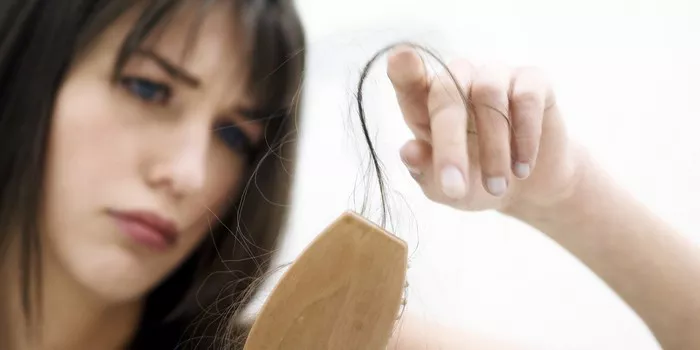For many new mothers, the postpartum period is a time of joy, excitement, and change. However, it also brings with it some unexpected challenges, one of which is postpartum hair loss. Understanding the causes, mechanisms, and potential for regrowth is crucial for women experiencing this temporary but often concerning phenomenon.
Unraveling the Causes of Postpartum Hair Loss: Hormones and Beyond
Postpartum hair loss, also known as telogen effluvium, is a common occurrence that occurs in the months following childbirth. Several factors contribute to this hair loss, with hormonal fluctuations playing a significant role.
Hormonal Shifts: During pregnancy, elevated levels of hormones like estrogen prevent normal hair shedding. After childbirth, these hormones rapidly decrease, leading to a shedding phase where more hair than usual enters the resting phase.
Stress and Nutrition: The stress of childbirth, combined with potential nutritional deficiencies, can contribute to postpartum hair loss. Adequate self-care, including a balanced diet and stress management, is crucial during this period.
1. Understanding the Hair Growth Cycle: The Key to Patience
To comprehend the process of hair regrowth after postpartum hair loss, it’s essential to understand the natural hair growth cycle.
Anagen Phase: The active growth phase of hair, which can last several years. During pregnancy, elevated hormones prolong this phase.
Telogen Phase: The resting phase where hair is shed. Postpartum, hormonal changes trigger more hair to enter this phase simultaneously.
Catagen Phase: The transitional phase between anagen and telogen. It’s a short-lived phase where hair prepares to shed.
2. The Timeline of Postpartum Hair Loss: When to Expect Changes
Postpartum hair loss typically occurs around three to six months after childbirth, as the hormones return to pre-pregnancy levels. Understanding this timeline can help manage expectations.
Onset of Shedding: Hair shedding may commence around the third month postpartum and peak at the sixth month. It’s important to note that not all women experience the same timeline or severity of hair loss.
Duration of Shedding: The shedding phase can last several weeks to months. While it may be alarming, it’s essential to recognize it as a temporary condition.
3. Nurturing Your Hair Postpartum: Supportive Practices for Regrowth
While postpartum hair loss is a natural phenomenon, there are practices that can support healthy regrowth.
Nutrient-Rich Diet: Ensure your diet includes essential nutrients like vitamins A, C, D, and E, as well as iron and biotin. These nutrients play a crucial role in promoting hair health.
Gentle Hair Care: Avoid tight hairstyles, excessive heat styling, and harsh chemical treatments. Opt for mild shampoos and conditioners, and be gentle when detangling to prevent additional stress on fragile postpartum hair.
4. The Role of Hormones in Hair Regrowth: Patience Is a Virtue
Understanding the hormonal aspect of postpartum hair loss also sheds light on the regrowth process.
Hormonal Stabilization: As hormonal levels gradually stabilize postpartum, the hair growth cycle returns to normal. The shedding phase slows down, allowing new hair to emerge.
Individual Variation: The rate of regrowth varies among individuals. Some may notice regrowth sooner, while others may take more time. Patience is crucial during this period.
5. Seeking Professional Guidance: When to Consult a Specialist
While postpartum hair loss is typically a temporary and self-resolving condition, there are instances where professional guidance may be beneficial.
Persistent Hair Loss: If hair loss persists beyond six months postpartum or worsens, consulting a dermatologist or healthcare professional is advisable. They can explore potential underlying causes and recommend appropriate interventions.
Signs of Other Health Issues: If hair loss is accompanied by other symptoms like fatigue, changes in weight, or skin issues, it’s essential to seek medical advice to rule out underlying health issues.
Conclusion: Embracing the Journey of Postpartum Hair Regrowth
Postpartum hair loss can be a challenging and emotionally charged experience for new mothers, but understanding the natural processes involved is key to navigating this journey with confidence. While it’s normal to be concerned about hair regrowth, patience and self-care play pivotal roles in supporting healthy recovery. By adopting supportive practices, maintaining a nutrient-rich diet, and seeking professional guidance when needed, women can embrace the journey of postpartum hair regrowth and celebrate the resilience of their hair in this transformative phase of motherhood.
Will Hrt Help My Hair Grow Back

